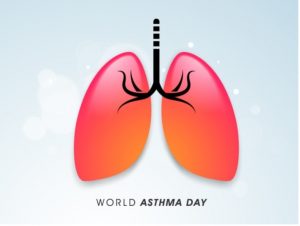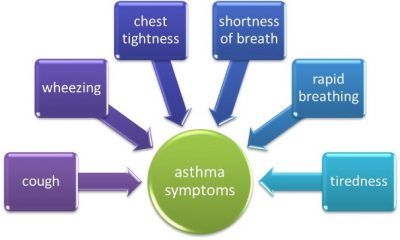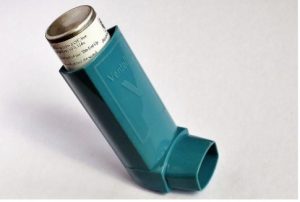I was first diagnosed with asthma at the age of 15 – some 40 odd years ago – after a childhood dogged by chest infections, breathing problems and the horrible syrup alupent (which still makes me feel sick today).
Asthma is a condition in which the airways (the tubes that carry air in and out of the lungs) narrow and swell causing reversible obstruction. Treatments can help manage the condition but there is no known cure. Asthma can last several years or be lifelong and family history may increase the likelihood of contracting the disease.
Symptoms of asthma are:
Asthma is a distressing, long-term condition which affects your life in many ways. For example, I have had to take medication for the disease most of my life, and during lockdown and Covid-19, I was classed as being clinically extremely vulnerable which meant I have spent most of the last 12 months working from home and limiting my exposure to risk by rarely going out.
This has had a big impact on my mental health and wellbeing and I have put on over a stone in weight, which exacerbates my asthma as the additional weight increases the pressure on my ribs and lungs.
In the UK, there are standards of care for people with asthma which help us to manage our asthma better. This includes regular asthma reviews by your GP, using peak flow meters to understand what control looks like for each person and a crisis plan for when our asthma gets worse, or we have an attack.
Diet is also something that clinicians are suggesting can be helpful.
Food to eat:
- Foods rich in Vitamin C like kiwis, broccoli, berries, oranges and tomatoes
- Foods rich in Vitamin E like almonds, spinach and sweet potato
- Foods rich in Omega-3 fatty acids like canola oil, cod liver oil, flaxseed oil and mustard oil
Food to avoid:
- Dried fruits like dried apricot
- Alcoholic drinks like wine or beer
- Frozen or prepared shrimp
- Food with high amount of sulphites and preservatives like pickles
- Food that is allergic to your body
Self-care is also important.
- Keep fit and healthy
- Try to keep your body warm
- Cover your mouth if outside in the cold
- Avoid smoking and indirect smoking
- Take an allergy test and avoid things you are allergic to, e.g., dust, animal hair
- Take anti-histamines daily (ask your GP)
- Use your peak flow meter regularly
- Take your medication, as prescribed
- Avoid strong odours in bedrooms at night.
- Exposure to sunlight for a few minutes might help.
Asthma is a common, if difficult condition, but it is one we can manage and live with
if we follow the rules. I have learned to come to terms with mine but I do recognise
that it can be a lonely condition and I am a big fan and subscriber to Asthma UK https://www.asthma.org.uk who keep me up to date with all things asthma related as
well as sending regular self-care tips and videos.
An asthma diagnosis is the beginning of a different life and it is one that you can embrace in order to thrive, I am proof of that!
By Alison Lowe




